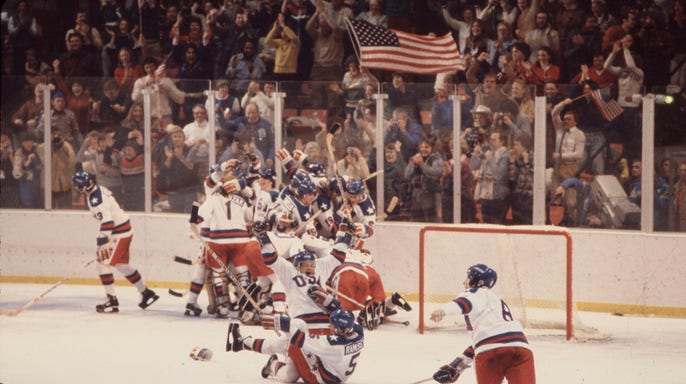
The “Miracle on Ice” is not just a sports event; it’s a narrative that has been etched into the annals of history, symbolizing the triumph of the human spirit against all odds. This momentous occasion unfolded during the 1980 Winter Olympics in Lake Placid, New York, and has since become a beacon of hope and a testament to the power of determination and belief.
The Stage: The stage was set against the backdrop of the Cold War, a period of geopolitical tension between the United States and the Soviet Union. The Olympic ice hockey match wasn’t just a game; it was a proxy battle for ideological supremacy. The Soviet Union’s hockey team, the Red Army team, was the juggernaut of the sport, having won the gold medal in the four previous Winter Olympics and were the reigning world champions.
The Underdogs: In stark contrast, the US team was a patchwork of collegiate athletes and amateur players. They were young, inexperienced on the international stage, and led by coach Herb Brooks, whose unconventional methods and psychological games were as much a part of the team’s fabric as their on-ice practices.
The Build-Up: The US team’s journey to the medal round was nothing short of miraculous. They had shown promise but also vulnerability in their exhibition games and early Olympic matchups. Yet, as the tournament progressed, the team’s cohesion and resilience began to shine through, culminating in their advancement to the medal round, where they would face the Soviet Goliath.
The Match: February 22, 1980, became a date forever remembered. The game started with the Soviets asserting their dominance, as expected, with an early goal. However, the US team responded quickly, tying the game. The back-and-forth continued, with the Soviets pulling ahead only to be caught again by the relentless Americans. The atmosphere was electric, the tension palpable, and the stakes higher than any game played before.
The Turning Point: As the final period began, the US team found themselves trailing once more. But then, something extraordinary happened. Mark Johnson found the net, tying the game, and shortly after, Mike Eruzione, the team captain, scored what would become the winning goal. The crowd erupted, the players embraced, and the world watched in disbelief.
The Aftermath: The “Miracle on Ice” was more than just an upset; it was a victory that transcended the sport. The US team’s win against the Soviets was a metaphorical victory for the American way of life during a time when morale was low due to various international crises. The game concluded with the US defeating Finland to clinch the gold medal, but it was the victory over the Soviet Union that captured the hearts and imaginations of millions.
The Legacy: The legacy of the “Miracle on Ice” endures because it encapsulates the essence of sports — the belief that on any given day, David can defeat Goliath. It’s a story that continues to inspire athletes and non-athletes alike, a reminder that with unity, hard work, and a bit of luck, the impossible can become possible.
“If the Soviet Union were to play this American team 100 times, the Soviets would win 99 of them. This was the one.”
— VSEVOLOD KUKUSHKIN (Soviet journalist and translator)






